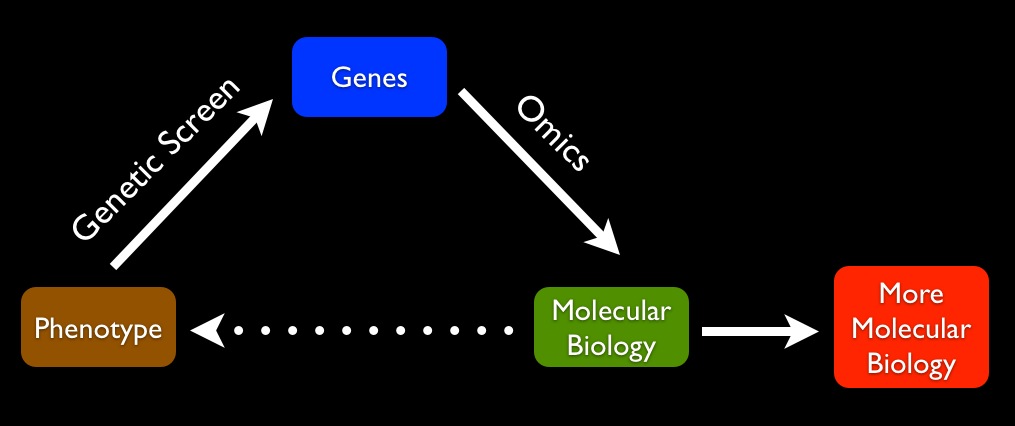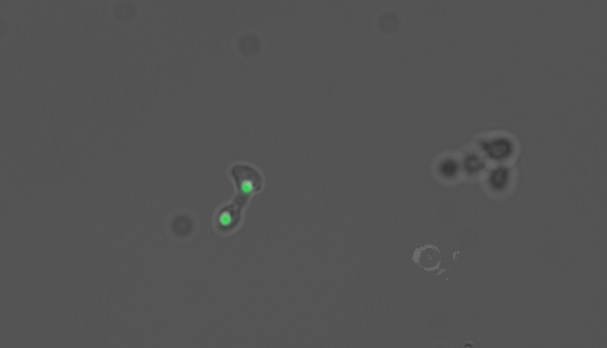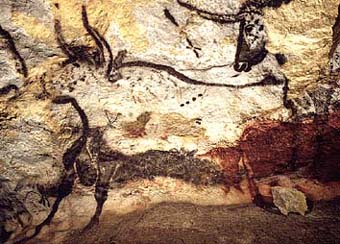Most science talks I listen to, even good ones, leave me dissatisfied because the stories I hear never come to a complete resolution. The issue is this: we can get from traits to genes, and from genes to molecular biology. But we have largely failed at getting from molecular biology back to the characteristics of organisms. We don't do a good job explaining organismal traits with molecular biology.
Life can be brutal for yeast in the wild. You don't know where your next meal is coming from or what form it's going to take. The key to being a successful yeast is to be metabolically agile, able to switch your metabolic state quickly based on the food source that's currently available on the bark of an oak tree or in the leaf litter of a forest floor.
The FBI yesterday
released a 104-page report laying out its case the the 2001 anthrax attacks were committed by a US Army bioweapons researcher, Dr. Bruce Ivans. Some are arguing that this report isn't conclusive and that the FBI is closing the case prematurely. I can't speak to that, at least in any informed way, but if the FBI is correct, you've got a chilling, classic evil scientist scenario:
Physicist and sci-fi author David Brin on
healthy versus pathological skepticism w.r.t. climate science:What factors would distinguish a rational, pro-science "skeptic" - who has honest questions about the HGCC consensus - from members of a Denier Movement who think a winter snowstorm means there's ni net-warming of the planet?...
After extensive discussions with such folk, I found a set of distinct characteristics that separate thoughtful Skeptics from your run of the mill, knee-jerk Denier dogma puppet.
Among the distinguishing traits:
'If you begin by treating the scientific ideas of earlier centuries as myths, you will end by treating your own scientific ideas as dogmas': we have tried, throughout this book, to display the developing character of the scientific endeavor, and to indicate why the different problems of cosmology came to be tackled in the order in which they did. If we are to understand even our own scientific ideas, and do more than simply manipulate with the most up-to-date calculi, we shall do well to study the strong points of the scientific systems which they displaced. From the quandaries and difficulties which delayed the formation of our modern 'common sense' we can discover best the true character and meaning of our twentieth-century conceptions.
David Brin (author of The Postman) is
interviewed this week as part of
Nature's ongoing series of interviews with science writers:
Brin got his PhD in physics and then left research to write science fiction:
For every Steven King, there are a dozen guys like me who make a good living. For every David Brin, there are a dozen authors who have managed to make it their day job. For each of them, there are a dozen more for whom writing is a terrific supplement.
His thoughts on getting the science right:
 Melville on Science vs. Creation Myth
Melville on Science vs. Creation Myth Non-coding DNA Function... Surprising?
Non-coding DNA Function... Surprising? Yep, This Should Get You Fired
Yep, This Should Get You Fired No, There Are No Alien Bar Codes In Our Genomes
No, There Are No Alien Bar Codes In Our Genomes









